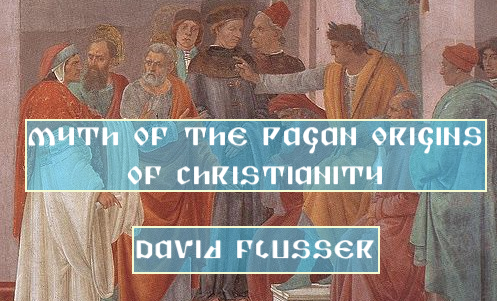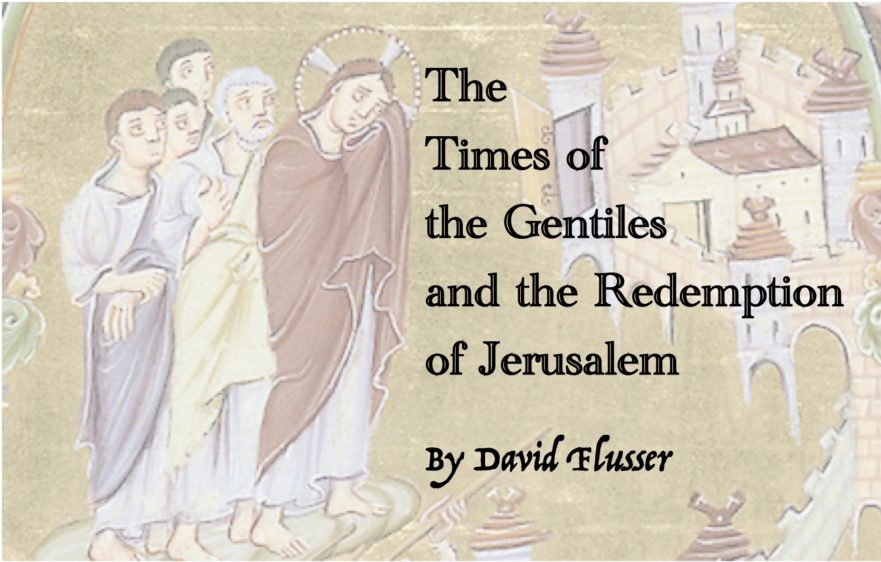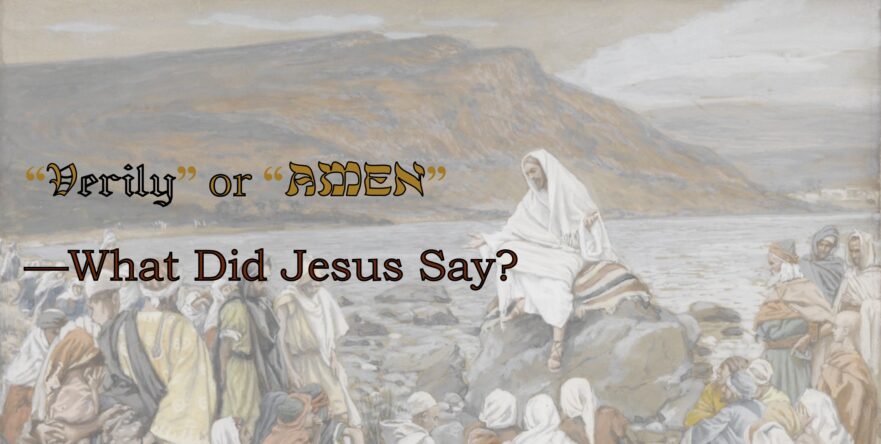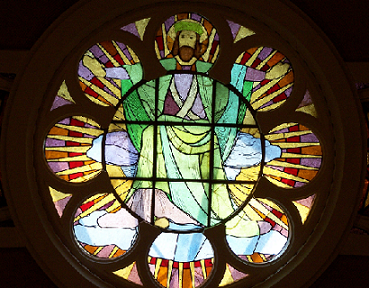Despite the popularity of the modern suggestion that the Synoptic Gospels are the end result of several decades of oral transmission, the internal evidence indicates that this is not the case. Dozens of pericopae in Matthew and Luke translate to Hebrew so easily and so idiomatically that we must conclude that the Synoptic Gospels are the result of literary transmission.
Foreword to Robert Lindsey’s A Hebrew Translation of the Gospel of Mark

It seems clear that Lindsey’s observations have provided a decisive new clue to understanding the synoptic relationships and an equally important clue to the correct approach to the Gospel of Mark.
Myth of the Pagan Origins of Christianity

The artificial constructions of scholars who once sought to build a bridge directly from Hellenism to Christianity are being dismantled, both because of greater knowledge of the Greek world and due to more intensive study of ancient Jewish and Christian thought.
The Power of Song

Dan’s song, “The Good Judge,” in three well-crafted verses, manages to express so much of what I believe is at the heart of Jesus’ message: God is a faithful Judge, a caring Father and a righteous King.
A New Approach to the Synoptic Gospels

My solution to the synoptic problem leads to a very different assessment of the Gospels than is common in New Testament scholarship today.
From Luke to Mark to Matthew: A Discussion of the Sources of Markan “Pick-ups” and the Use of a Basic Non-canonical Source by All the Synoptists

The first article I wrote on the interrelationships of Matthew, Mark and Luke to each other and to other canonical and non-canonical sources appeared in the journal Novum Testamentum. With further research, however, I refined my hypothesis.
Introduction to A Hebrew Translation of the Gospel of Mark

Jerusalem Perspective presents a newly revised version of Robert Lindsey’s groundbreaking essay on the Synoptic Problem, which served as an introduction to his Hebrew Translation of the Gospel of Mark.
Jesus’ Place in First-century Judaism and His Influence on Christian Doctrine

The main aims of this contribution are, first, to show what Jesus’ place was among the various trends of the Judaism of his time and, second, to estimate the impact on Christianity of his teachings and of his life and death.
The Times of the Gentiles and the Redemption of Jerusalem

In this article David Flusser applies the methods of the Jerusalem School of Synoptic Research and the insights of Robert Lindsey’s solution to the Synoptic Problem to Jesus’ prophecy concerning the destruction and liberation of Jerusalem.
A New Two-source Solution to the Synoptic Problem

Shortly after Robert L. Lindsey’s eureka moment (“Luke is first!”) on February 14, 1962, and at Professor David Flusser’s urging, Lindsey submitted the following article to the editors of Novum Testamentum. The article was published in the journal’s November 1963 issue as “A Modified Two-Document Theory of the Synoptic Dependence and Interdependence,” Novum Testamentum, Vol. 6, Fasc. 4 (November 1963): 239-263. Lauren S. Asperschlager, David N. Bivin and Joshua N. Tilton have updated and emended the article to bring it in line with the modifications Lindsey made to his hypothesis over the following 30 years. Pieter Lechner has created the tables and graphics.
“It Is Said to the Elders”: On the Interpretation of the So-called Antitheses in the Sermon on the Mount

Jesus’ Sermon on the Mount deserves endless study, and the more one studies ancient Jewish sources, the clearer the meaning of these words of Jesus becomes.
My Search for the Synoptic Problem’s Solution (1959-1969)

As a consequence of my endeavor to produce a Modern Hebrew translation of the Gospel of Mark I began to develop a different picture of the interrelationship of the Synoptic Gospels than that which is espoused by most New Testament scholars.
Character Profile: Who Was John Mark?

Professor David Flusser on R. L. Lindsey’s “revolutionary step” in New Testament scholarship, showing that the Gospel of Mark, which made Jesus “less of a Jew,” was written latter than Luke.
Character Profiles: Gamaliel and Nicodemus

Gamaliel saved the lives of Jesus’ apostles, and also influenced Paul’s ethics, even after Paul’s conversion. Nicodemus belonged to the Hillelite anti-Zealot circles to which Jesus himself was close.
Measuring the Disparity Between Matthew, Mark and Luke

A solution to the synoptic problem involves, among other things, the measurement of the disparity we find between parallel texts in Matthew, Mark and Luke.
“Verily” or “Amen”—What Did Jesus Say?

In translating the Greek texts of the Gospels into Hebrew, Dr. Lindsey found that many passages could be rendered literally with almost no change of word order. The result was a Hebrew version that often sheds fascinating light on the meaning of Jesus’ words, so much so that Lindsey came to believe the Greek sources Matthew, Mark and Luke used were rendered very literally from Hebrew originals. This Hebraic perspective sometimes explains Gospel passages that have long been considered difficult or ambiguous. In the following article, Lindsey presents one example of what has been considered a uniquely idiosyncratic expression of Jesus, but which a Hebraic perspective reveals to be a familiar phrase from the Scriptures.
On “Blood” in the Apostolic Decree (Acts 15:19-20)

Flusser and Safrai’s premise is that “blood” in this passage does not refer to the consumption of blood but rather to murder. They conclude that the apostolic decision prohibiting eating meat sacrificed to idols, fornication, and blood is equal to the rabbinic decree that under penalty of death a Jew may violate any of the commandments of the Torah with the exception of idolatry, adultery and murder.

